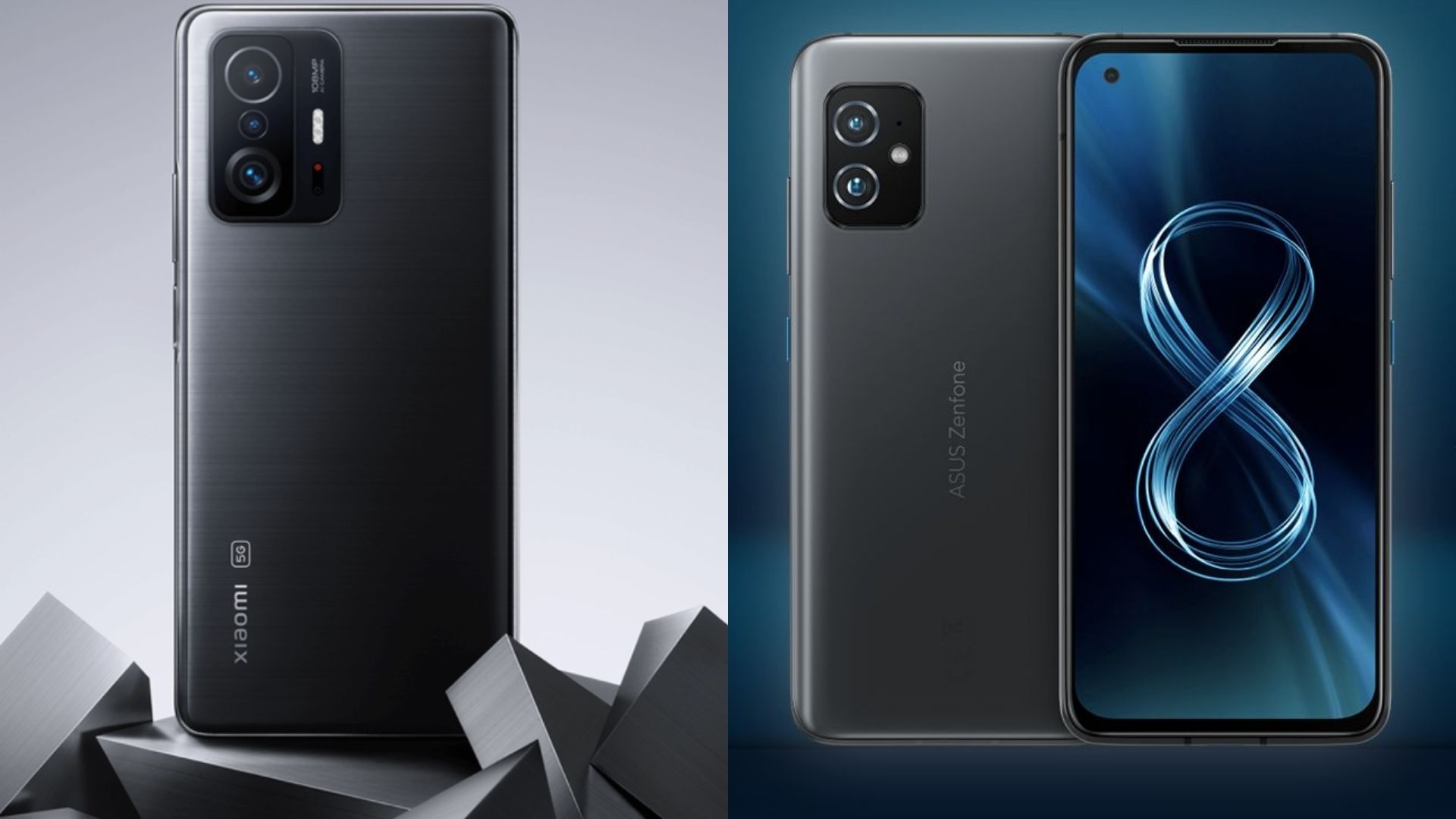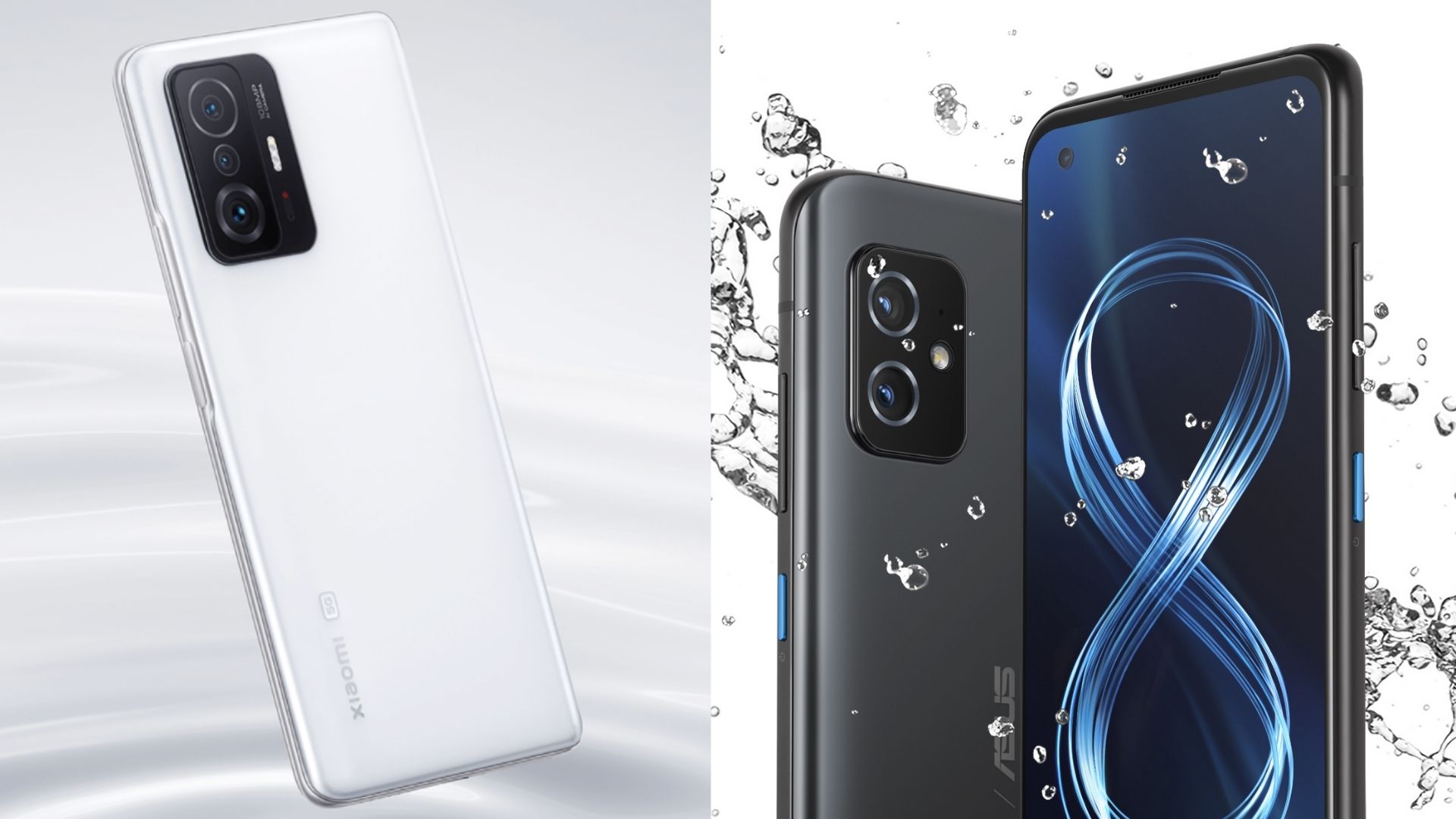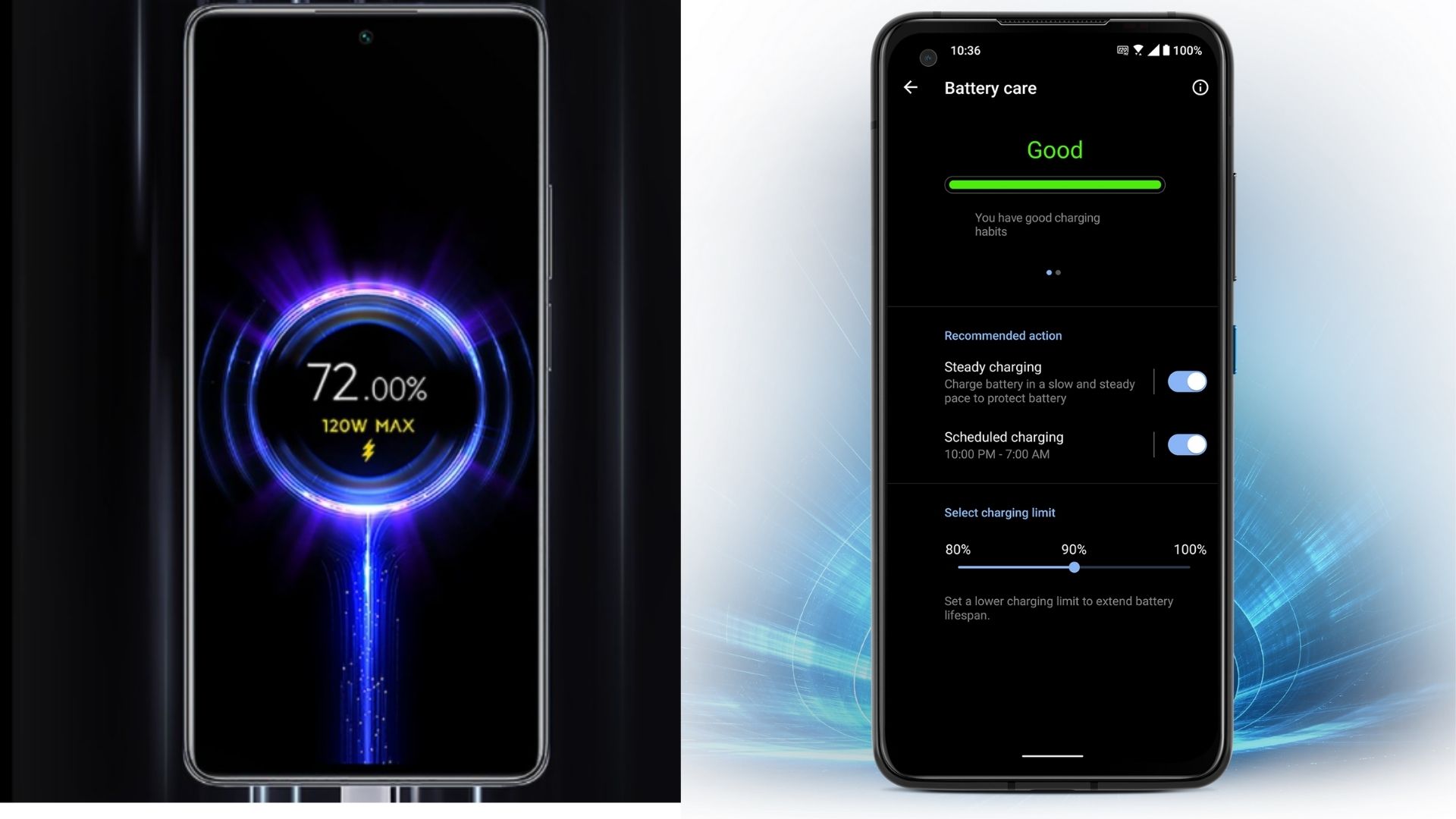Asus 8Z vs Xiaomi 11T Pro - near-stock Android or top-notch performance?
Find out which one is better and why

Asus, after a long time, has finally released the Asus 8Z smartphone in India. It is being boasted as a capable and compact flagship device available in India. Previous rumours suggested that the Asus 8Z Flip will also reach the Indian shores alongside Asus 8Z. However, it seems like the company has different plans for both devices.
Starting off with the highlights, the smartphone has a 5.9-inch AMOLED display, high refresh rate, near-stock Android experience, and more. The smartphone gets powered by a Qualcomm Snapdragon 888 chipset. The choice of chipset here sounds a bit vague because Snapdragon has already launched two processors, the Snapdragon 888 Plus and Snapdragon 8 Gen 1, that are better than the one used in Asus 8Z.
On the other hand, Xiaomi 11T Pro is one of the latest launches by the company. It comes with the same Snapdragon 888 processor and also supports the 120W HyperCharge ultra-fast charging technology.
The device also includes a 108MP primary shooter, AMOLED display, 120HZ refresh rate, 8GB LPDDR5 RAM, Harman Kardon speakers, etc. The smartphone has Virtual RAM to deliver better performance at the time of heavy RAM usage.
Here we have compared both Asus 8Z and Xiaomi 11T Pro to know which one has the upper hand because both the smartphones lie in the same price range and are even powered by the same chipset.
Asus 8Z vs Xiaomi 11T Pro pricing and availability
The Asus 8Z has a single RAM variant, including 8GB RAM with 128GB internal storage. The smartphone is available in the Indian market at a price of Rs 42,999. The device is being shipped in two colours, including Horizon Silver and Obsidian Black. The smartphone's first sale is scheduled to be held on March 7 exclusively on Flipkart.
The 8GB RAM variant of Xiaomi 11T Pro with 128GB internal storage can be purchased for Rs 39,999. The 8GB RAM variant with 256GB internal storage is available for Rs 41,999. The high-end variant of the device with 12GB RAM and 256GB internal storage is available at a price of Rs 43,999. The smartphone is being shipped in three different colours - Moonlight White, Celestial Magic, and Meteorite Black.
Get daily insight, inspiration and deals in your inbox
Sign up for breaking news, reviews, opinion, top tech deals, and more.
Asus 8Z vs Xiaomi 11T Pro design and build

Asus 8Z has a glass-based rear panel with a soft matte finish. The rectangular camera module is placed at the top left of the device, and the Asus branding can be seen in the center. The spines of the smartphone are made of metal, and it has an official certification of IP68.
The power button and volume rockers are placed at the left spine of the device. The smartphone is 8mm thick, and it weighs around 169 grams. The front panel of Asus 8Z has thin bezels, and a punch-hole cutout at the top left corner for the placement of the front camera.
The rear panel of the device has a metallic finish, and the camera island is situated at the top left corner. The Xiaomi branding can be seen at the bottom left corner of the device. Talking about the front panel, the smartphone has thin bezels, and the display is protected by Corning Gorilla Glass Victus.
The volume rockers and the fingerprint integrated power button are situated at the right spine of the device. It has a punch hole cut out in the top middle are for the front camera. However, one thing to note here is that the smartphone is quite heavy as it weighs around 209 grams.
Asus 8Z vs Xiaomi 11T Pro specifications

Asus 8Z comes with a 5.92-inch FHD+ AMOLED display coupled with a 120Hz refresh rate. The smartphone is powered by a Qualcomm Snapdragon 888 processor, and it is based on the Android 11 OS with ZenUI skin on top. The smartphone has 8GB LPDDR5 RAAM along with 128GB UFS 3.1 internal storage.
Asus 8Z flaunts a dual rear camera setup, including a 64MP primary shooter with OIS and a 12MP ultra wide-angle sensor. At the front, the device has a 12MP snapper for the sake of selfies and video calls. The smartphone packs a 4000mAh battery that supports 30W fast charging. For security purposes, the device has an in-display fingerprint sensor.
Xiaomi 11T Pro features a 6.7-inch flat AMOLED display paired with a 120Hz refresh rate and a 480Hz touch response. The smartphone runs on Qualcomm Snapdragon 888 processor, and it operates on MIUI 12.5 based on the Android 12 operating system. The smartphone packs 8GB LPDDR5 RAM along with 128GB UFS 3.1 internal storage with 3GB virtual RAM support.
Xiaomi 11T Pro rocks a triple rear camera setup, including a 108MP primary snapper, 8MP ultra wide-angle snapper with 120-degree field of view, and a 5MP telemacro snapper. The smartphone consists of a 16MP sensor at the front to capture selfies and attend video calls.
It draws power from a 5000mAh battery that supports 120W HyperCharge ultra-fast charging tech. As claimed by the company, the smartphone can get completely charged from zero to 100 percent in just 17 minutes.
Conclusion
Starting the conclusion on an honest note, it doesn't seem like both the smartphones will have a neck-to-neck competition. In terms of display, we can expect Asus 8Z to give fair competition to Xiaomi 11T Pro. However, the latter trumps the former when it comes to better viewing and streaming experience with its bigger display.
Apart from that, customers get multiple storage options in Xiaomi 11T Pro, and it is clearly missing in the case of Asus 8Z. No doubt Xiaomi 11T Pro also has a better camera system than Asus 8Z, as the former comes with 108MP primary shooter. In terms of battery, Xiaomi 11T Pro again outclasses Asus 8Z as the smartphone has a 5000mAh battery with 120W fast charging support.
As it can be seen, People who want the most out of their device at a price of around Rs 40,000 can go for the Xiaomi 11T Pro without any doubt as it offers some of the best specifications. On the other hand, people who want a premium experience at that price point can go for Asus 8Z as it also offer neat to stock Android experience.
Want to know about the latest happenings in tech? Follow TechRadar India on Twitter, Facebook and Instagram

A career journalist who spent three years playing around with smartphones, associated apps and home appliances. As a hobby, Rudra enjoys researching mobile games. When he's not busy in the world of gadgets, Rudra is busy with a paper and pen writing poems or engaging with his growing digital audience on the Hindi rap circuit.